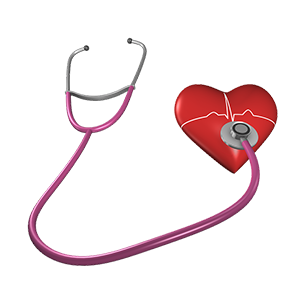 If pets are part of your family, you schedule regular veterinary visits to ensure the health of your furry friends. Consider additional protective steps you can take during Pet Insurance Month, observed in September.
If pets are part of your family, you schedule regular veterinary visits to ensure the health of your furry friends. Consider additional protective steps you can take during Pet Insurance Month, observed in September.
What is Pet Insurance?
Similar to health insurance for humans, pet insurance helps you pay for the expected and unexpected health care your pet needs. You may choose from a variety of policies.
- Accident – Pay for the treatment of unexpected accidents or injuries like animal bites or poisoning but not illnesses or diseases.
- Accident and Illness – Treat broken bones, ear infections, diabetes, and other accidents, sicknesses, diseases, and pet health changes.
- Routine, Preventative Care or Wellness – Cover annual exams, vaccinations, flea control, and teeth cleaning.
You may also purchase endorsements or riders. They cover specific issues that aren’t included in your regular policy.
Your policy will include limits, too. Choose the annual, lifetime, per condition, or unlimited lifetime limit as you prepare to provide your pet with the best possible care.
Keep in mind that pet insurance includes exclusions based on your pet’s age, breed and hereditary conditions. Your policy could also be denied because of a pre-existing condition, such as a diagnosed illness or disease.
Review your policy carefully to ensure it meets your needs. For example, ensure the policy covers cancer treatment before you schedule the procedure so you’re not surprised by a denied claim after your next vet visit.
How do you use Pet Insurance?
Pet insurance allows you to see the veterinarian of your choice. You’ll pay the veterinarian out-of-pocket and then submit a claim to your pet insurance company. After you pay your deductible and any co-payment, you’ll receive reimbursement as per your policy terms.
How much does Pet Insurance Cost?
Your pet’s age and breed affect your pet insurance costs. Other factors include your location, the type of policy you purchase, the deductible, benefit limit, and reimbursement percentage. Discuss your needs and budget with your insurance agent as you purchase the right coverage for your pet.
Why Would you Purchase Pet Insurance?
Ultrasounds, blood work, dermatology treatment, and other medical and surgical procedures can cost thousands of dollars. With insurance, you can afford the treatment your pet needs. It also allows you to seek medical treatment as soon as possible rather than put off diagnostic or treatment visits. You can and insurance to choose treatment rather than euthanasia for your beloved pet, too.
During Pet Insurance Month, learn how to enhance your pet’s quality of life and give your furry friend the medical treatment it needs and deserves. This valuable product protects your pet and could save its life.
Read more

Often these days, you hear about credit reporting agencies or large retailers announcing a significant data breach. Hackers are usually able to access the names, birth dates, Social Security numbers and addresses of millions of consumers, which put their identity and credit at risk.
A credit report freeze is one protective measure that is highly recommended . Every consumer, including you, should understand this protective measure as you protect your data, identity and credit.
What is a Credit Report Freeze?
A credit report freeze allows you to restrict who can access your credit report. When a freeze is in place, only certain professional entities can see your information, and it’s less likely that an identity theft can access your data.
Ways a Credit Report Freeze Affects You
When you place a credit report freeze on your account, it affects you in several ways.
1. It prevents certain entities from accessing your credit report. This includes potential employers, mortgage companies and car dealers.
2. Existing creditors and any debt collection agencies they hire and government agencies responding to a court order or subpoena may continue to access your credit report.
3. You can continue to access your free annual credit report.
4. It does not affect your credit score.
5. You will continue to receive prescreened credit offers for credit or insurance. Call 888-5OPTOUT (888-567-8688) or go online to optoutprescreen.com if you wish to stop receiving these offers.
How to Place a Credit Report Freeze
Contact the three nationwide credit reporting companies to freeze your credit report.
To place a freeze, you must provide your name, birth date, Social Security number, address and other personal information. You will also have to pay a fee. It typically ranges from $5 to $10 but varies based on where you live.
How to Know if Your Credit Report Freeze is Successful
After placing a credit report freeze, you will receive a confirmation letter from the credit reporting company. It includes a unique password or PIN you will need if you ever choose to lift the freeze.
How to Lift a Credit Report Freeze
Your credit report freeze remains in place indefinitely. However, you may want to lift it so you can apply for a job or credit. To do that, simply contact the credit reporting company to request a lift. You will provide your password or PIN, pay a fee that varies by state and indicate if you want a temporary or permanent lift.
A credit report freeze can protect your personal data and identity. Consider monitoring your bank, insurance and credit card statements, though, too, and purchase cyber liability insurance as a further protective measure.
Read more
Around 65 million Americans have high cholesterol, a condition that can affect anyone from young kids to senior adults. September is Cholesterol Education Month, and you can improve your health when you understand the definition of cholesterol and the best ways to prevent high cholesterol. 
What is Cholesterol?
Cholesterol circulates in your blood and resembles wax or fat. It supports metabolic processes, such as cell membrane stabilization, vitamin D formation, and steroid hormone and bile acid production. It While your body makes cholesterol naturally, it’s also found in food. If you make or consume more cholesterol than your body needs, the excess will accumulate in your arteries and narrow those passageways, which could increase your heart disease and stroke risk.
You have good cholesterol (HDL – high-density lipoprotein), bad cholesterol (LDL – low-density lipoprotein) and triglycerides. The lipoproteins carry cholesterol to and from your body’s cells.
- HDL – Removes bad cholesterol as it flows through your bloodstream.
- LDL – Becomes part of the plaque that lines your arteries.
Your cholesterol levels can depend on several factors, including a family history of heart disease, diabetes, or high blood pressure. Smoking, alcohol consumption, stress, and your weight can also affect cholesterol levels.
What are Normal Cholesterol Levels?
The ideal cholesterol level is under 170 mg/dL. Your LDL level should be under 110 mg/dL, and your HDL level should be over 35. Aim for a triglyceride level of under 150 mg/dL. While these numbers are confusing, your doctor can explain them and help you achieve healthy levels.
How do you know if you have High Cholesterol?
You might have high cholesterol and not know it. Visit your doctor for a blood test that shows your cholesterol levels. Typically, adults over the age of 20 should have their cholesterol checked every five years. High-risk children should have their cholesterol checked regularly, too.
How is High Cholesterol Treated?
Often, lifestyle changes can reduce your cholesterol levels. Your doctor may recommend exercise and dietary improvements, such as:
- Engage in two hours and 30 minutes of moderate exercise or one hour and 15 minutes of vigorous physical activity each week.
- Eat more high-fiber food, including fruits, vegetables and whole grains.
- Limit the amount of saturated fat and sugar in the foods and beverages you consume.
- Maintain a healthy weight.
- Quit smoking and lower your alcohol intake.
- Reduce stress.
Your doctor may prescribe medication, too. Statins reduce the amount of cholesterol your body makes and can lower your bad cholesterol levels.
This month, raise your cholesterol awareness levels. Visit your doctor for a cholesterol check, and discuss the steps you can take to achieve a healthy lifestyle that improves your health now and into the future
Read more
 If pets are part of your family, you schedule regular veterinary visits to ensure the health of your furry friends. Consider additional protective steps you can take during Pet Insurance Month, observed in September.
If pets are part of your family, you schedule regular veterinary visits to ensure the health of your furry friends. Consider additional protective steps you can take during Pet Insurance Month, observed in September.
 Often these days, you hear about credit reporting agencies or large retailers announcing a significant data breach. Hackers are usually able to access the names, birth dates, Social Security numbers and addresses of millions of consumers, which put their identity and credit at risk.
Often these days, you hear about credit reporting agencies or large retailers announcing a significant data breach. Hackers are usually able to access the names, birth dates, Social Security numbers and addresses of millions of consumers, which put their identity and credit at risk.